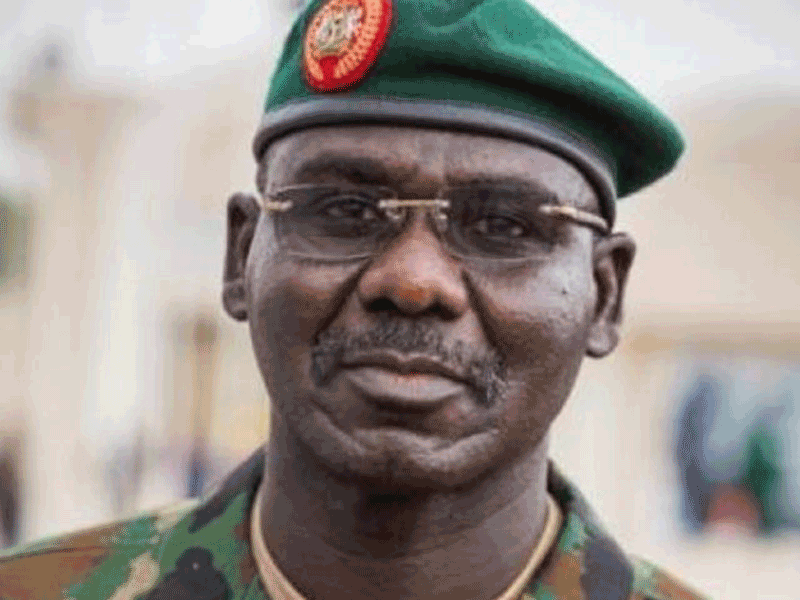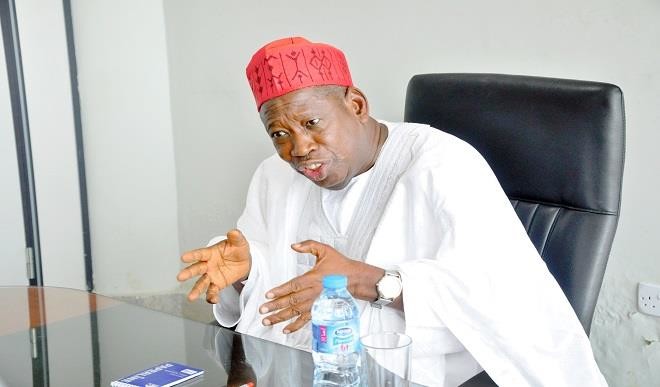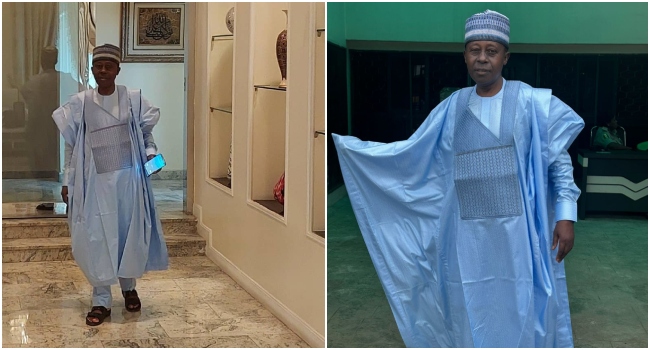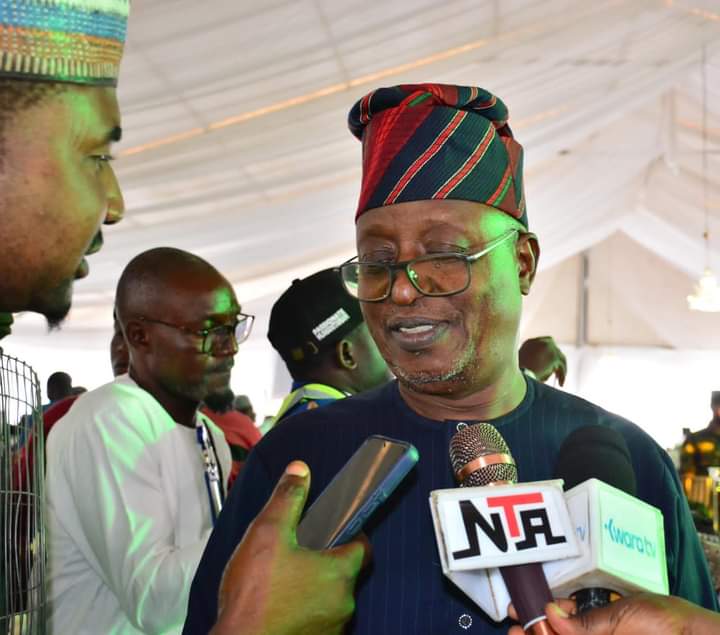- US Approves Super Tucano Attack Planes for Nigeria
After years of foot-dragging, the US State Department has finally approved a $593 million sale to Nigeria of A-29 Super Tucano attack planes with associated parts, training, facilities and weapons.
The Defence Security Cooperation Agency (DSCA) delivered its certification of the foreign military sale to Congress, as required by law, on August 2, according to United Press International.
The military equipment sales approval came just as a Nigerian Defence College report submitted to Acting President Yemi Osinbajo in July admitted that Boko Haram had made much impact in its terrorist activities in the North-east because it had superior fire power.
The report, which was the outcome of a research by the college’s Course 25, said the Nigerian military had been hampered in its operations against the terrorists because it lacked the technical equipment necessary to stand up to Boko Haram.
The college’s report corroborated another report by the US Bureau of Counter-terrorism, released in July 2017 and reported exclusively on Monday, that the military lacked the capacity to hold the grounds conquered by it from Boko Haram due to tactical and strategic challenges.
Although the military claimed Thursday that the publication and analyses of the US bureau report were detrimental to national security, the approval of the sale of military equipment to it must be good news to its high command.
By the approval, 12 airplanes would be sold to the Nigerian military.
The 12 A-29s, equipped with wing-mounted machine guns, weapons integration with advanced surveillance and precision-guided bombs, and even air-to-air missiles will help Nigeria to combat the Boko Haram insurgents and other extremist groups, such as the Islamic State West Africa splinter group.
The equipment will also help Nigeria to counter smuggling and other forms of trafficking in Nigeria and the Gulf of Guinea.
The DSCA had determined that U.S. security interests would be served by assisting Nigeria in its counter-insurgency operations and that the A-29 sale would not significantly alter the military balance of power in the region.
The contract would require the U.S. Government or private contractors to provide training and support and would include instructions on rules of engagement and human rights to help prevent civilian casualties.
The Embraer A-29 Super Tucano is a turboprop light attack plane in service with countries across the world. It is designed for counter-insurgency operations and close-air support in areas lacking significant air defences. It is also widely used as a training aircraft.
It is a contender in the U.S. Air Force’s OA-X light attack aircraft competition for a low-cost and easy to operate and maintain air support platform.
Light planes like the Tucano can fulfil air support and surveillance needs in low-risk environments at a much lower operational cost than heavier jets like the A-10 or F-16 and require less flight and maintenance training.
The attack planes will be a big boost for Nigeria’s military anti-terrorism campaign in the North-east of the country.
Past attempts to procure the plane under the Barack Obama administration were frustrated by accusations of human rights abuses against Nigeria’s military.
According to Defence Industry Daily, the Super Tucano is known as the A-29 or ALX in Brazil, but abroad, it’s the EMB 314 successor to Embraer’s widely-used EMB 312 Tucano trainer.
The plane offers better flight performance than the EMB 312 Tucano, plus armouring and wing-mounted machine guns, weapons integration with advanced surveillance and targeting pods, precision-guided bombs, and even air-to-air missiles.
This makes it an excellent territorial defence and close support plane for low-budget air forces, as well as a surveillance asset with armed attack capability. Brazil uses it this way, for instance, alongside very advanced EMB-145 airborne radar and maritime patrol jet platforms.
In Africa, Ghana, Angola, Burkina Faso, Angola, Mauritania, either have the Tucano in their air forces, or they had placed orders for new supplies.
Defence College Report Rues Military’s Deficient Equipment
The expected planes would come in handy to redress the pathetic situation of the military which the Nigerian Defence College report painted. Entitled: ‘Terrorism and National Security: The Nigerian Experience’, a strategy and security policy paper presented to the vice-president by the National Defence College Course 25 in July 2017, it stated that the terrorists were staging a comeback because the military did not have the adequate and requisite equipment to stop them.
“Most of the units overran by the Boko Haram terrorists was not because of the military’s inability to fight, but due to lack of weapons, ammunition and basic fighting equipment,” the report said, explaining that most of the units fighting terrorists required specialised technical equipment to be able to carry out their assigned tasks.
“The units lack the full complements of equipment needed to discharge their roles and this hampers the kinetic efforts in the North-east,” the report emphasised.
To support the assertion that the Nigerian military lacked the superior firepower to stop Boko Haram, the security document stated: “In March 2017, about 30 soldiers fighting Boko Haram terrorists in the North-east revealed details about the mass killings of their colleagues due to poor firepower and inadequate equipment to combat the insurgents,” adding that the military had been in short supply of equipment for effective operations since 2013.
It stated that inadequate firepower had continued to undermine the efforts of operation ‘Lafiya Dole’ in completely countering the Boko Haram terrorists.
It narrated: “In April 2017, Boko Haram terrorists invaded the military barracks in Sabon Garin in Damboa Local Government Area of Borno State and overwhelmed the troops with superior firepower.”
To turn the tide of the event, the strategy document advised that Nigeria should invest in arms and ammunition production locally. “With most countries in the West dragging their feet to sell military platforms to Nigeria, there is the need to start looking inwards to be able to sustain the fight against terrorism in the long run,” it said.
The report said the inability of the military to garner the resources needed to produce these platforms locally was a great obstacle.
The US Bureau of Counter-terrorism report had similar findings and this was exclusively reported on the day Acting President Osinbajo condemned penultimate Tuesday’s ambush of the Chad Basin oil exploration team by the Boko Haram, leading to the deaths and abduction of members of the ill-fated team.
The US report belied the claim by the federal government that it was on top of the situation in the North-east.
While directing military chiefs to relocate to the North-east last week, Osinbajo had said that the government was on top of the crisis despite the resurgence of terrorists’ attacks in the troubled region, the most recent of which was the ambush of the exploration team.
But the report by the US Bureau, which tracks terrorism and counter terrorism measures across the world, found that Nigeria was not on top of the situation.
The report stated: “Despite gains made by the Multi-National Joint Task Force (MNJTF), much of its reported progress was merely duplication of failed efforts carried over from the end of last dry/fighting season,” adding: “The Nigerian military was unable to hold and rebuild civilian structures and institutions in those areas it had cleared.”
It also faulted the decision of the federal government to return internally displaced people to their original places of abode, saying that this was being done without adequate security.
“The Nigerian government continued to facilitate the return of internally displaced persons to their home communities, although sometimes without providing adequate security and before appropriate conditions were in place for safe, informed, voluntary returns,” it said.
The report also said that Nigeria did not show any evidence that it would implement a coordinated plan to restore civilian security in recaptured territories.
Another weakness in Nigeria’s approach to dislodging Boko Haram as shown by the US report is the lack of coordination among intelligence gathering agencies.
Analyses of US Report on Boko Haram Detrimental to National Security, Says DHQ
Three clear days after publication of the US Bureau report, the Nigerian military finally found its voice, claiming that it was detrimental to national security.
A statement by the Director of Defence Information, Maj-Gen John Enenche, in Abuja, said the analyses that had followed the THISDAY report had continued to derail the nation’s counter-insurgency plans in many ways, adding that they were eroding the confidence of the public in the military.
Enenche said: “It has been observed by the Defence Headquarters that Nigerians and the general public are being misinformed on the ‘Country Reports on Terrorism 2016’ released by the United States of America (USA) Department of State.
“The misinformation cuts across sensational headlines in some print and electronic media to prejudiced comments and analysis of the report among others, which are detrimental to Nigeria’s national security and interest. Therefore, it is instructive to present the report in the right and objective perspective to Nigerians.
“Country reports on terrorism are submitted on annual basis in compliance with Title 22 of the United States Code, Section 2656f (the ‘Act’) by the Department of State to Congress. It is aimed at providing a report on those countries and groups that meet the criteria of the Act. The report used to be published as ‘Patterns of Global Terrorism’ up till 2003 but was changed to the present title beginning from 2004.
“Thus, against the contrary picture given to Nigerians and the general public on the report in question, it did not cover only Nigeria but covered; Niger, Cameroon and Chad. That is, all the countries affected by Boko Haram Terrorists menace.”
He explained: “It is necessary to point out that the USA does not publish this report with the objective of causing restiveness among the populace, but to draw government’s attention to areas that could be improved upon to tackle global terrorism.
“Thus, credit must be given to the USA for its strategic global efforts towards ensuring a more secure world. As such, Nigeria and the general public should not believe the misinformants whose intentions are to pit the Nigerian Military negatively against the USA.
“At this point, it is necessary to let Nigerians and the general public know that the USA and other international partners have been supporting the Armed Forces of Nigeria in the fight against insurgency and terrorism in the Lake Chad Basin region.
“The report is not being objectively analysed by the misinformers because of their ulterior motive. Thus, it behoves the Defence Headquarters to clarify the particular sentence that was capitalised upon, which is ‘The Nigerian Military was unable to hold and rebuild civilian Structures and Institutions in those areas it had cleared’. The simple and objective interpretation is as follows:
“The report was for 2016 and not January to July 2017. Hence, attributing the assertion to be current is rather wicked and should be disregarded.
“To clear an area in this context is a military task while to hold is the task of para-military and other security agencies.”
Enenche said: “After the decimation of the terrorist strongholds in the North-east, other security agencies such as the Nigeria Police, National Security and Civil Defence Corps have been taking hold of areas cleared by the military. That is why Adamawa and Yobe States have virtually little incidents of terrorist acts in the recent past.
“Furthermore, the rebuilding of civilian structures and institutions is not a military task. It is purely the responsibility of the government of which a lot is being done.
“The efforts of Borno, Yobe, and Adamawa States are evident in this regard. Equally, are the visible positive deliberate efforts of Presidential Committee on the North-east Initiative (PCNI).
“In addition, there are non-governmental organisations and good spirited individuals and private organisations contributing to rebuilding civilian structures and institutions in the North-east.
“The above notwithstanding, the Nigerian Army has all along been involved in the restoration and construction of roads and bridges demolished by the terrorists, to open up transportation routes in the North-east.
“As laudable as these efforts amongst other quick impact projects executed by the Nigerian Army and Airforce, even in 2016, they were not captured in the report. Thus, it is educative for Nigerians and the general public to be aware of this corporate social responsibility by the military in the North-east.
“It is worthy to let Nigerians know that, the report highly commended Nigerian Government of which the Nigerian military is a part.
“Clearly without ambiguity, it stated ‘the Nigerian Government actively cooperated with the United States and other international partners to prevent further acts of terrorism in Nigeria against U.S citizens, citizens of third world countries, and Nigerian citizens’.
“From this, therefore, is it possible for the report to contradict itself? Obviously no. Thus the misinformers deliberately decided to hide this commendation from Nigerians and the general public, to cause disaffection for the Nigerian Military among the populace, which should not be accepted.”


 Naira4 weeks ago
Naira4 weeks ago
 News3 weeks ago
News3 weeks ago
 Education4 weeks ago
Education4 weeks ago
 Social Media4 weeks ago
Social Media4 weeks ago
 Economy4 weeks ago
Economy4 weeks ago
 Investment4 weeks ago
Investment4 weeks ago
 Dividends4 weeks ago
Dividends4 weeks ago
 Business3 weeks ago
Business3 weeks ago




























